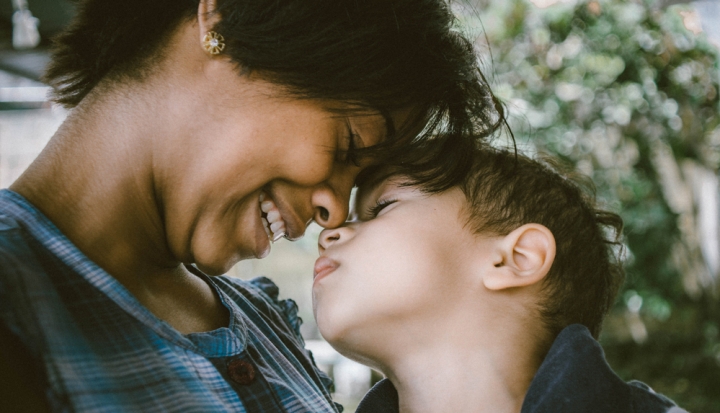In a recent meeting with all the players in our foster daughter’s case—social workers, attorneys, birth parents, adoption experts, and my husband and me—I was asked to give a summary of T’s progress since our last meeting, three months previous. I told the group all of T’s recent successes: being promoted up a level in gymnastics; behaving well (for the most part) in school and at home; scoring on grade level in reading and math. Thinking about how far T had come in the past three years, I smiled.
“You’re really infatuated with her, aren’t you?” asked a man in the room who had made it clear in previous meetings that he did not want T to be adopted by Bill and me. He said it with a sly smile and clearly meant it as an insult—using the word “infatuation” in place of “love” to suggest our feelings for T were surface only.
I looked at him but did not respond. His words were so off base that they didn’t even sting. Infatuated. Thinking about it later, I could have responded that I wish I were infatuated with T. Infatuation is quite a bit easier than love. Infatuation comes early in a relationship, before we know the person fully. During the infatuation stage, we delight in a person’s good qualities; everything about the person is sparkly and new. Talents are lauded as unique and remarkable, while troublesome behaviors are dismissed as quirks and eccentricities. Infatuation is a fun stage—it’s most delicious when you’re dating the person, but I found the feeling of infatuation to be lovely with each of my babies (including toddler T) as well.
Love, specifically parental love, has little in common with infatuation. Parenting and loving T has been the most difficult endeavor Bill and I have faced as a couple. At the same time, it’s been the most meaningful and rewarding experience of our marriage.
To love is to respond to the needs of another. And the more we know a person the more we understand his or her needs, both small and profound. Parenting is an intentional loving response to the needs of a child—and the more complicated the child’s needs the more difficult it can be to discover what the loving response must be. In just a few cases in each lifetime, we are privileged to actually see what another human being may need to become more fully him- or herself.
And what is parenting but reaching into the soul of a child and pulling out the true person who resides there?
Sorry, sir, that’s not infatuation. It’s hard work. It’s love.
Whether it’s a physical disability, a challenging personality, or a background of trauma, some children require a more intentional approach to love.
Pray for the child
Challenging children can cause parents to spiral into self-questioning and self-pity. Whether at church or at home, spend time in prayer for your child. Try to avoid prayers that seek a “fix” for the child’s problems. Instead ask for the grace you will need to give this child what he or she needs.
Hugs, eye-contact, and time together
You may find yourself less likely to purposefully interact with a child who demands so much of your energy. Seek out your child for a hug and an encouraging word during “neutral” moments. For children to develop a healthy self-esteem, they need at least five positive interactions with parents for each negative one. This doesn’t mean that you skip telling your higher-needs child when he’s done something wrong, but it may mean you have to compliment him on smaller successes (“Great job remembering to brush your teeth”). Ask your child to look into your eyes as you give a compliment.
See the child as your mission from God
Whatever the challenges your child faces, God chose you for this child. Look into yourself to explore why this may be. What can you offer this child that no one else would be able to provide as well? Talk to others who have similarly challenging children—not for a gripe session, but to exchange ideas on how to stay motivated and mission-oriented.
This article was originally published in the February 2011 issue of At Home with our Faith.
Image: Unspash cc via Bruno Nascimento















Add comment